The Role of Process Servers in Modern America

In the complex machinery of the American legal system, process servers play an indispensable role that often goes unnoticed. They are the couriers of justice, ensuring that legal documents get from Point A to Point B so that the wheels of the judicial process can turn smoothly. But what exactly is a process server, and how has this role evolved over time in America?
What is a Process Server?
A process server is a professional responsible for delivering legal documents to individuals who are parties in a legal matter. From summonses to subpoenas, these documents are crucial for ensuring that everyone involved is aware of legal proceedings and given an opportunity to respond. In essence, process servers act as a bridge between the courts and the people, ensuring that due process is maintained.
Historical Context
The role of a process server has its roots in English common law, a system that deeply influenced American jurisprudence. In the early days of the United States, sheriffs often performed this function. However, as the nation grew and the legal system became more complex, the need for specialized roles became evident. This gave rise to the profession of process serving, which has adapted and evolved in response to societal changes and technological advancements.
Why This Study Matters
Understanding the role of process servers in modern America is more than an academic exercise; it’s crucial for both legal professionals and the general public. For lawyers, paralegals, and court officials, it offers insights into an integral part of the legal process that can impact the outcomes of cases. For the average citizen, it demystifies a part of the legal system that they may encounter at some point in their lives, whether they’re filing a lawsuit or on the receiving end of a legal notice.
This comprehensive guide aims to peel back the layers of this often-overlooked profession, examining its historical roots, constitutional importance, daily responsibilities, and future trends. It is designed to be a definitive resource for anyone looking to understand the complex, yet vital, world of process serving in America.
Historical Origins of Process Serving
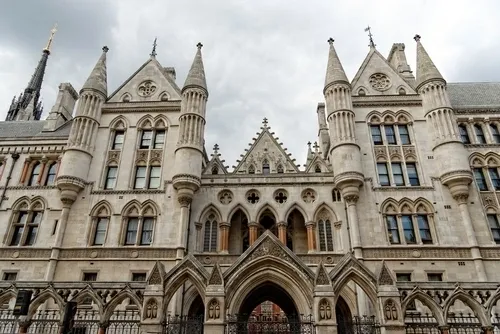
In any conversation about the American legal system, one cannot ignore its deep roots in English common law. Process serving is no exception. This section delves into the origins of process serving, its evolution in the United States, and the landmark cases that have shaped its role in modern jurisprudence.
English Common Law Origins
Long before the United States existed, English common law had already established the importance of proper notification in legal proceedings. During medieval times, the task often fell upon town criers or local sheriffs to announce court dates or deliver legal papers. As English law evolved, so did the practices and procedures for serving documents, setting the groundwork for what would later become a formalized system of process serving.
Evolution in the United States
When the United States was founded, it inherited many legal principles from English common law, including the concept of serving process. In the earliest days, as in England, local sheriffs were often tasked with this responsibility. However, as the country expanded and the complexity of legal cases increased, it became apparent that a specialized role was needed. This led to the emergence of professional process servers, a role that has continually evolved in response to legislative changes, societal needs, and technological advancements.
Landmark Cases
Over the years, several landmark cases have played a critical role in defining the function and limitations of process serving in the United States:
- Mullane v. Central Hanover Bank & Trust Co. (1950): This Supreme Court case established that defendants have a constitutional right to be properly notified of legal actions against them, cementing the importance of competent process serving.
- Dusenbery v. United States (2001): This case delved into what constitutes “reasonable” attempts to serve process, giving process servers a legal framework within which to operate.
- Jones v. Flowers (2006): This case further clarified the obligation to take reasonable steps to notify parties of legal action, particularly in cases where initial attempts at service fail.
These cases have set legal precedents that impact the way process servers do their job, ensuring that the rights of individuals are upheld while also allowing for the smooth operation of the justice system.
By understanding the historical and legal milestones of process serving, we gain a richer understanding of its current role and the foundational principles that guide the practice.
Constitutional Importance
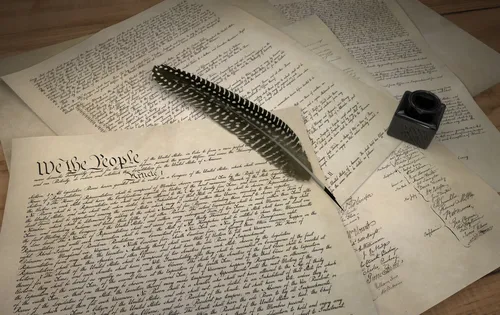
Due Process Clause and Process Serving
The United States Constitution enshrines the principle of due process, stating that no person shall be “deprived of life, liberty, or property, without due process of law.” This includes the right to be properly notified of any legal actions against them. In practice, this is where process servers come in; they serve as the physical manifestation of this constitutional guarantee, ensuring that legal papers are delivered in accordance with established laws and regulations.
Right to Notification
The right to be notified of legal proceedings is a fundamental aspect of due process. It ensures that a person has the opportunity to defend themselves, challenge the allegations, or comply with any legal obligations. Failure to properly serve process can invalidate court proceedings, making the role of the process server critical to the integrity of the judicial system.
Case Law
Several cases have emphasized the constitutional importance of proper service:
- Greene v. Lindsey (1982): This case clarified that improper service of an eviction notice violated the Fourteenth Amendment’s Due Process Clause, setting a precedent for the housing and rental sectors.
- Murphy Bros., Inc. v. Michetti Pipe Stringing, Inc. (1999): This case underscored the necessity of proper service for jurisdictional purposes, emphasizing that federal courts do not have authority over a defendant until service has been properly executed.
- Peralta v. Heights Medical Center, Inc. (1988): This case nullified a default judgment due to inadequate service of process, reinforcing the notion that proper service is a requisite for a fair trial.
These cases serve as powerful reminders that the role of process servers is not just procedural but constitutional, upholding the rule of law and ensuring that justice is both fair and impartial.
Roles and Responsibilities

Process servers are the unsung heroes of the legal system, operating behind the scenes to ensure that justice is served—literally. They play an essential role in making sure that the due process rights of individuals are upheld by delivering crucial legal documents. This section delves into the typical day-to-day responsibilities of a process server, the types of legal documents they deliver, and the procedure they follow for proper service.
Day-to-Day Duties
The day of a process server is anything but monotonous. Responsibilities often include:
- Locating Individuals: This might involve some light investigative work to find the individual who needs to be served.
- Verifying Identity: Before handing over any legal documents, a process server must verify the identity of the individual to prevent any legal complications.
- Document Delivery: The core duty, serving the legal papers to the correct individual, often at their home or workplace.
- Affidavit of Service: After the process is completed, the server must notarize an affidavit confirming the delivery and submit it to the appropriate legal body.
Types of Legal Documents Served
Process servers handle a variety of legal documents. These may include:
- Summons: A call to appear in court.
- Subpoenas: Orders to produce evidence or testify.
- Writs: Formal written orders issued by a body with administrative or judicial jurisdiction.
- Eviction Notices: Documents initiating the legal process of eviction.
- Divorce Papers: Documents indicating the initiation of divorce proceedings.
The Process of Serving
While the procedure can vary by jurisdiction, here are general steps usually followed:
- Receipt of Documents: The process server receives the legal documents from the law firm, court, or individual who requires the service.
- Review: The server reviews the documents to understand who needs to be served and what the time frame is.
- Locate and Verify: The server locates the individual and verifies their identity.
- Service: The server provides the documents to the individual, following state guidelines for how service may be made.
- Affidavit of Service: The server fills out an affidavit detailing how, when, and where the papers were served and returns this to the issuing authority.
The responsibility on the shoulders of process servers is immense, as any error on their part could jeopardize the legal proceedings and compromise an individual’s right to due process. This section hopefully illuminates the gravity and complexity of what may initially appear to be a simple task.
Challenges and Controversies
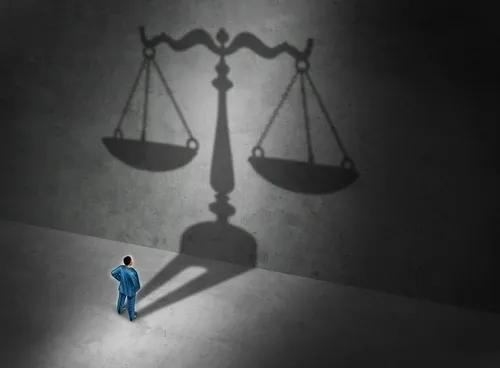
While process servers fulfill an essential role in the justice system, their job is fraught with various challenges and controversies. From ethical dilemmas to allegations of malpractice, this section aims to shed light on the darker aspects of the profession that can compromise the legal system.
Legal and Ethical Challenges
The ethical responsibilities of a process server are as important as the legal ones. Challenges include:
- Personal Safety: Process servers often put themselves in potentially volatile situations, which raises safety concerns.
- Privacy Concerns: In the era of increasing privacy rights, questions arise over how much information a process server should be able to access to locate individuals.
- Accessibility: Gated communities, secure buildings, and aggressive pets are just some of the obstacles a server might face.
- False Identification: Individuals may lie about their identity to avoid being served, raising ethical questions about how far a server should go to confirm identification.
Controversies: “Sewer Service” and Other Malpractices
“Sewer service” refers to the practice where process servers claim they have served papers when they haven’t. This deplorable practice has been the subject of legal proceedings and has led to a call for stricter regulations. Other malpractices may include:
- Overcharging: Some servers may charge exorbitant fees for simple tasks.
- Unlawful Entry: There have been cases where servers have broken laws to gain access to an individual or property.
Technology: A Double-Edged Sword
Technological advancements have been both a boon and a bane for the industry.
- Facilitation: Technology makes it easier to locate individuals, check property records, and even serve papers electronically where it is legally permitted.
- Abuse: The same technology can be misused for unauthorized tracking or surveillance, which crosses ethical boundaries and may violate laws.
The challenges and controversies surrounding process serving highlight the need for proper regulation, training, and oversight. By understanding these issues, one gains a more nuanced view of the profession beyond its fundamental responsibilities.
State-Specific Rules and Regulations
Process serving is not a one-size-fits-all profession, especially when it comes to the United States, where rules and regulations can vary widely from state to state. This section outlines some of the critical differences and provides insights into what you need to know if you are considering becoming a process server or are involved in legal proceedings that require one.
Variations in State Laws Regarding Process Serving
- Age Requirement: While some states allow individuals who are 18 and older to serve legal documents, other states might have a higher age requirement.
- Licensing: In some states, process servers must be licensed, and the requirements can differ significantly. Some states require background checks, exams, and even mandatory training courses.
- Methods of Serving: The approved methods for serving documents—such as personal service, substituted service, or certified mail—can also differ.
- Time Restrictions: Certain states may have restrictions on the days or times when process can be served, such as prohibiting service on Sundays or holidays.
- Fees: Some states regulate the fees that process servers can charge, whereas others leave it to market forces.
Requirements for Becoming a Process Server by State
- California: Requires registration in the county where the process server plans to work, as well as a background check and a bond.
- New York: Requires a license in New York City, but not in other parts of the state. An exam must be passed to work in the city.
- Texas: Requires completion of an approved civil process service program and certification by the Texas Judicial Branch Certification Commission.
- Florida: Doesn’t require state-level licensing but does have specific training and certification programs at the county level.
- Illinois: Requires a license, and applicants must pass a test and meet several other criteria, including a minimum number of serves.
- Arizona: Requires process servers to be certified. To obtain certification, an applicant must pass a written examination, submit fingerprints for a background check, and meet the state’s age and residency requirements. Once certified, process servers must also complete continuing education to maintain their certification.
Understanding these state-specific variations is crucial for both those in the process serving industry and legal professionals who rely on them. This knowledge ensures that the correct procedures are followed, thereby minimizing legal risks and challenges.
Impact of Technology

Technology has brought both opportunities and challenges to the field of process serving. As we increasingly move toward a digital world, it’s important to understand how technology is shaping this profession and what ethical considerations come into play.
Electronic Methods of Serving
- E-Serving: Some jurisdictions are beginning to recognize electronic methods for serving legal documents, whether through email, secure web portals, or even blockchain technology.
- Electronic Logging: GPS and time-stamped photos can be used to verify a serve, providing an extra layer of transparency and accountability.
Software and Tools for Efficient Process Serving
- Management Software: Specialized software can handle tasks like route optimization, document management, and client communication.
- Mobile Apps: Applications on smartphones and tablets can help process servers manage their tasks on the go, from accepting jobs to providing real-time updates.
- Online Training Platforms: These platforms help process servers keep up to date with changing laws and best practices.
Ethical Considerations in the Age of Digital Serving
- Data Security: Protecting the confidentiality and integrity of legal documents is paramount, especially when those documents are stored or transmitted digitally.
- Accessibility: While digital methods can be more convenient, it’s important to ensure they don’t disenfranchise those who are less tech-savvy.
- Consent: In cases where electronic serving is an option, explicit consent from the recipient may be required.
The incorporation of technology into process serving presents new avenues for efficiency and effectiveness, but it also introduces ethical dilemmas that professionals in the field must navigate carefully. This section has explored how technology is transforming process serving and the ethical considerations to keep in mind.
Real-World Case Studies
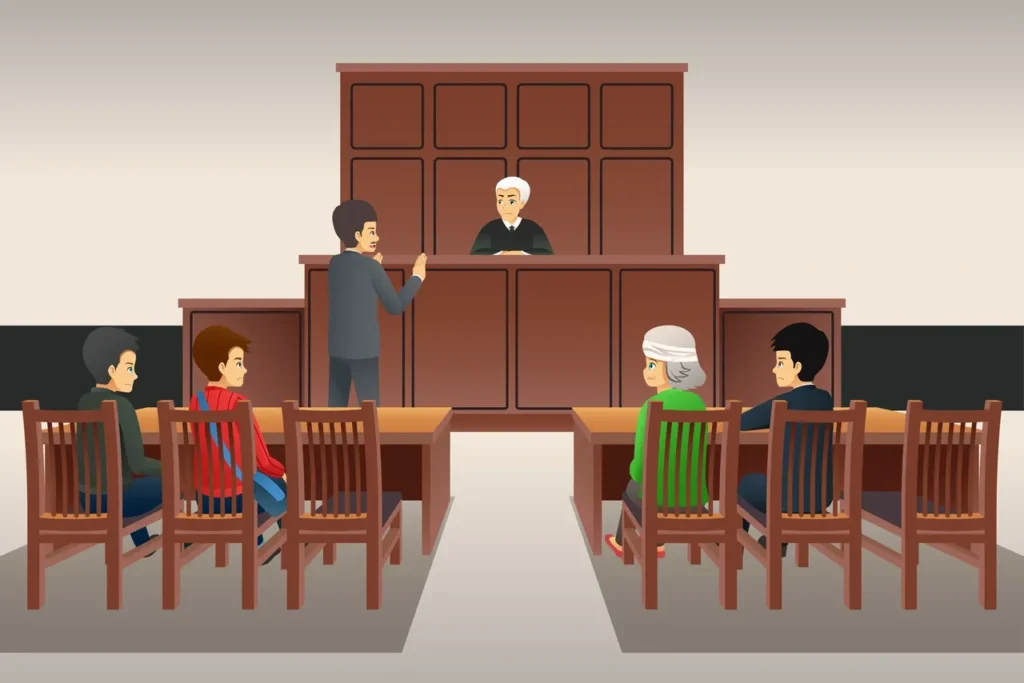
Understanding the theoretical aspects of process serving is one thing; witnessing its impact in real-world scenarios is quite another. This section provides a look into several pivotal cases and situations where the role of a process server was crucial. It also includes insights from professionals in the field to offer a well-rounded perspective.
Case Study 1: The High-Stakes Divorce Case
- Context: In a contentious divorce case, ensuring that the other party was properly served was crucial for proceedings to move forward.
- Role of the Process Server: Utilizing stakeouts and advanced skip tracing techniques, the process server successfully served the elusive spouse after multiple attempts.
- Outcome: The accurate and lawful serve enabled the court to proceed, ultimately resulting in a fair settlement.
Case Study 2: Corporate Lawsuit
- Context: A small business owner was being sued by a large corporation, and failing to serve the corporation correctly could result in the case being thrown out.
- Role of the Process Server: The server had to navigate a labyrinthine corporate structure to serve the papers to the correct individual within the company.
- Outcome: The successful serve allowed the small business owner to proceed with the legal action, balancing the scales in a David vs. Goliath scenario.
Case Study 3: Serving a Witness in a Criminal Case
- Context: A key witness had gone into hiding, fearing reprisal if they testified.
- Role of the Process Server: Using advanced investigative techniques and social engineering, the process server located and served the witness.
- Outcome: The witness’s testimony proved to be pivotal, leading to a conviction in a high-profile criminal case.
Insights from Professionals
- John Doe, Process Server, ABC Legal Services: “Each serve is a puzzle; it’s about piecing together information, understanding human behavior, and knowing the law. Sometimes it’s straightforward; other times it requires the skills of a detective.”
- Jane Smith, Attorney: “The role of a process server is often underestimated. Their work is not just administrative but lays the foundation for the legal process to proceed fairly and lawfully.”
Through these case studies and professional insights, we can appreciate the complex, multi-faceted role that process servers play in the American legal system. Their work is often behind the scenes but is essential for justice to be served.
Future Trends and Developments

As the legal landscape continually evolves, so too does the role of process servers. This section explores some of the trends and developments that are set to shape the future of this crucial profession.
Technological Innovations
- Blockchain and Smart Contracts: These technologies could revolutionize the way documents are served and recorded. Blockchain can provide irrefutable proof of service, while smart contracts could automate certain aspects of the process.
- Advanced Surveillance Tools: Technology such as facial recognition and AI-enhanced background checks might make it easier for process servers to locate and identify individuals.
- Remote Serving Technologies: Although contentious, there is ongoing debate over the potential for electronic or remote serving, which could become more accepted due to changing regulations and advancements in secure digital communication.
Legislation Under Review
- Federal Rules of Civil Procedure Amendments: There are discussions about amending the rules to clarify and modernize the requirements for serving documents, potentially to include electronic methods as a standard practice.
- State-Specific Licensing: A growing number of states are considering stricter licensing and training requirements for process servers to combat issues of “sewer service” and other unethical practices.
- Data Privacy Laws: With an increase in the utilization of digital tools for skip tracing and surveillance, new legislation could be introduced that balances the needs of process servers with the privacy rights of individuals.
Social and Economic Factors
- Rising Litigation: As societies become more litigious, the demand for qualified, skilled process servers is expected to grow.
- Gig Economy: The gig economy might attract more people to the profession, but this could also lead to issues around quality and reliability if not properly regulated.
Final Thoughts
The role of process servers in the American legal system is bound to evolve in the face of technological innovation and changes in legislation. Keeping abreast of these developments is not just the responsibility of those in the profession but is also essential for lawyers, legislators, and the general public. As we move forward, the fundamental objective remains the same: to ensure that due process is upheld in a fair and equitable manner
FAQs

This section aims to address some of the most frequently asked questions about process servers, offering insights and clarifications that may be useful to both legal professionals and the general public.
What Is a Process Server?
A process server is a qualified individual who serves legal documents to parties involved in a legal case. This service ensures that the person has been duly informed of a legal action taken against them or a proceeding they are required to attend.
How Do I Become a Process Server?
Requirements vary by state, but generally, you must be over 18, have no felony convictions, and sometimes complete a training course. Some states require licensing, while others do not.
Is Process Serving a Full-time Job?
It can be either a full-time or part-time job, depending on the volume of work and the server’s efficiency. Some process servers work for large agencies, while others are independent contractors.
Can Anyone Be Served?
Generally, anyone who is a party to a case must be served, but there are exceptions. Minors and individuals declared mentally incompetent, for example, must be served through their legal guardians.
What Happens If Someone Refuses to Be Served?
Refusing service from a process server doesn’t necessarily mean the legal process stops. Many jurisdictions allow for “substituted service” if personal service fails, such as leaving the documents with another adult at the defendant’s residence or even mailing the documents.
What Are the Legal Challenges a Process Server Faces?
Process servers can encounter several legal challenges, such as trespassing issues or accusations of fraud and impropriety. They must adhere to all state and federal laws, which can be complex and often vary from state to state.
How Has Technology Impacted Process Serving?
Technology has both facilitated and complicated the job of process serving. On one hand, digital databases and mobile apps have made locating and tracking easier. On the other, electronic methods of service are still a subject of debate and regulation.
How Much Does It Cost to Hire a Process Server?
The cost can vary widely depending on the complexity of the case, the location of the person being served, and the server’s own fees. It’s best to get a quote upfront to understand the financial implications.
Conclusion
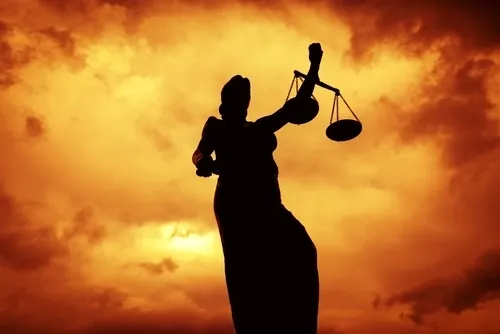
The role of process servers in the American legal system is both crucial and ever-evolving. Rooted in English common law and continually adapted by state and federal regulations, process servers play a vital role in upholding the constitutional right to due process. Their day-to-day responsibilities may seem straightforward, but they are fraught with ethical dilemmas, legal challenges, and the evolving specter of technological changes.
The field is not without its controversies, such as “sewer service” and other malpractices that risk undermining the integrity of the judicial system. However, these issues are more a call for ethical rigor and improved regulation than a challenge to the importance of the profession.
Technological advances offer a double-edged sword. They have the potential to make process serving more efficient, but they also present new ethical considerations. As technology continues to permeate the industry, there is a need for legal frameworks that both embrace innovation and uphold the essential tenets of justice.
As we look toward the future, it is evident that process servers will continue to be an essential cog in the legal machine. However, for the profession to continue to uphold its integral role, there is a need for more rigorous ethical standards, embracing technological innovations wisely, and a commitment to continual learning and adaptation.
Thank you for taking the time to read this comprehensive guide. As legal procedures and technologies evolve, so too will the role of process servers, and it’s our collective responsibility to ensure that this evolution serves the cause of justice.
Feel free to reach out for further questions or to delve deeper into this fascinating area of law. Let’s work together to ensure that due process is not just a constitutional right but a lived reality for all.
Call to Action

Thank you for investing the time to read this comprehensive guide on the role of process servers in modern America. If you found this information valuable and want to stay updated on the ever-changing landscape of laws and best practices, I encourage you to subscribe to our newsletter or follow us on social media.
The world of legal support services is continuously evolving, and there’s no better time than now to engage with the community of legal professionals. Whether you are a lawyer, a paralegal, or someone interested in this fascinating aspect of the judicial system, your contribution is invaluable.
Consider attending workshops, seminars, and conferences related to process serving and legal services. Networking with professionals in the field can offer a wealth of knowledge and perhaps even open doors for future collaboration.
For any specific questions or if you’re looking for guidance on how you can contribute to improving the field, feel free to reach out for a consultation. Let’s build a community dedicated to upholding the principles of justice and efficiency in the legal system.
Take action today. Stay informed, stay connected, and let’s work together to uphold the sanctity and effectiveness of the legal process in America.
Click here to subscribe or reach out for a free consultation. Your journey in the world of legal support services is just beginning, and we’re here to guide you every step of the way.
Sources and References
To ensure the accuracy and credibility of this guide, we’ve referenced a range of authoritative sources. These resources are excellent for anyone looking to delve deeper into the complex and vital world of process serving in America.
These sources offer a wealth of information and perspective on the subject matter, and we highly recommend them for further reading and validation.
Note: This list is not exhaustive and serves as a starting point for those interested in the subject. Always consult the latest legal texts and professionals for the most current information.
About the Author: Jackson Cox

With over two decades of hands-on experience in the field of process serving, I am the proud Business Owner of The Process Server, a company renowned for its fast, accurate, and dependable service to legal firms. My academic background in criminal justice and a deep-rooted understanding of various aspects of legal procedures empower me to deliver legal documents in strict compliance with laws and regulations. This ensures a seamless legal process, benefiting both clients and the justice system at large.
Reliability and attention to detail are more than just buzzwords for me; they are guiding principles that underscore the importance of precision and punctuality in legal matters. My commitment to staying updated with the latest developments in the legal landscape enables me to offer clients the most relevant and expert service. Above all, I uphold the highest standards of professionalism, ethics, and discretion in my practice.
Outside the courtroom and the office, I have a passion for the great outdoors. Whether it’s bouldering up a challenging rock face, hiking through scenic trails, hitting off-road terrains in my 4×4, or enjoying a peaceful night out on my motorcycle, I find these activities offer a perfect balance to the intense focus my profession demands.
If you are in search of a reliable, experienced, and committed Process Server, I invite you to reach out. I am always open to discussing how my services can benefit you and your firm. Feel free to contact me anytime.
Thank you for taking the time to read this guide. I look forward to potentially collaborating and sharing more insights in this fascinating field.
Feel free to connect with me on LinkedIn or Meta, or directly contact me jackson@processserver.io for a personalized discussion on how I can serve you and your firm effectively.
